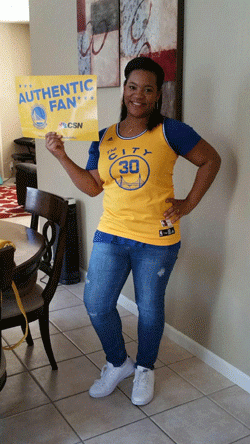Community Participation: A Means and a Goal of Recovery
 By Crystal Brinkley
By Crystal Brinkley
The Community Inclusion course was extremely refreshing to me personally as a consumer as well as professionally. I am very eager to see and be a part of the growth of this movement! It was invigorating to learn of an even greater holistic model for health and wellness. I thoroughly enjoyed the three day process including all the materials, the presenters and the diversity of interactive modalities used. The surveys and breakout groups were so helpful each in their own unique ways! Even having to present my wellness story in terms of impactful domains of participation was rewarding, especially after doing the exercise linking experiences back to childhood. By reframing my experiences in this way, I felt an even greater purpose and value in not just what I'm doing but why - it's given me even more meaning and empowerment for the domains I'm currently active in. In fact I noticed increased self-determination across the 3 days of training as I began to think differently about exercise and the different domains it connected me to. I had been lacking a lot of motivation prior to the training and by the end of it I was reconnected to yoga classes and have been significantly more active and more hopeful on a weekly basis! I have always valued being able to participate in various ways throughout my community however, after losing the capacity to interact in many ways in which I was formerly accustomed, I now have a much greater appreciation for the power of being a part, being seen, being useful just as I am on any given day.
Some of the learning points that I will take away from this are the importance of incorporating community participation for all people regardless of how well they are or what stage of recovery they are in. Most importantly is that participation in the community is both a means and a goal of recovery, not merely a final destination. I really appreciated the focus on mainstream inclusion as an alternative to a lot of our current models of peer support which support consumers via accommodating communities and mental health focused organizations & activities. Through the interactions with one or more domains, individuals can find even greater empowerment and sense of self because they're choosing the roles that they value which support their uniqueness and abilities without feeling like they don't belong or that they are not well enough to be included.
There are a variety of steps I plan to take to incorporate these ideals in my work and volunteer organizations and communities. Currently I work for Best Now, the local organization that trains peer specialists. I can see how our training materials can be updated to be more inclusive and encourage peers to support each other’s participation throughout the domains as a means of self determination and recovery, in addition to the students’ own personal journeys. I also hope to incorporate it by offering an informational workshop to all staff at an upcoming larger agency meeting which includes management from other peer support programs. For a long time now, I have been brainstorming ways to better support peers in my local religious community, however I can now see the importance of taking a more inclusive approach and creating opportunities for everyone to be involved instead of just focusing on those who identify with mental health challenges.
Earlier on in my recovery I always had an unrealistic benchmark of wellness being that I would eventually return to a level of activity and participation commensurate with what I was used to prior to significant health changes. Some of this was self-imposed however it was reinforced by mental health practitioners and sometimes even by family other peer consumers as well. I wish I had been offered a very different approach earlier on and felt more supported to engage in the domains that supported my wellness as opposed to forcing myself to maintain the expectations or standards that some former relationships or religious communities imposed. Through continued peer support, I look forward to offering this outlook of community inclusion to others who can benefit from exploring participation in domains from a different perspective. One that supports recovery by adding value and fosters choice and purpose.